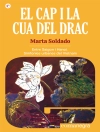In ‘Sketches of Central Asia, ‘ Ármin Vámbéry presents a rich tapestry of observations and reflections based on his travels through the lesser-known territories of Central Asia during the mid-19th century. The book is characterized by a keen blend of descriptive prose and meticulous ethnographic detail, rendering a vivid portrait of the cultures, landscapes, and societies he encountered. Vámbéry’s literary style encapsulates the spirit of Romanticism, intertwining personal narrative with scholarly inquiry, providing an engaging exploration of both the exotic and the familiar amid the socio-political dynamics of the era. Ármin Vámbéry, a Hungarian philologist and traveler, dedicated his life to the study of Central Asian languages and cultures. His unique background as the son of a Jewish family and his early academic pursuits in linguistics and geography instilled in him a profound curiosity for this historically rich yet often overlooked region. Vámbéry’s travels were not merely for adventure; they were fueled by a desire to bridge East and West, leveraging his extensive academic insights to challenge prevailing misconceptions about Central Asia and its people. Readers seeking a deepened understanding of Central Asia’s historical context, as well as those who appreciate travel literature that transcends mere observation to encompass cultural critique, will find ‘Sketches of Central Asia’ an invaluable resource. Vámbéry’s eloquent narrative invites readers into a world of complex identities, making it a vital addition to the libraries of historians, sociologists, and anyone fascinated by the interplay of culture and geography.
Yazar hakkında
Ármin Vámbéry, also known as Hermann Vambéry (1832-1913), was a renowned Hungarian orientalist, geographer, and traveler, best known for his daring explorations in Central Asia during the 19th century. Vámbéry was born in Szentgyörgy, Hungary (now Svätý Jur, Slovakia), and despite physical challenges from a congenital deformity, he demonstrated remarkable linguistic prowess. His academic ventures led him to the study of Oriental languages and cultures, which would become the cornerstone of his scholarly legacy. Vámbéry’s insatiable curiosity for the East culminated in his seminal work, ‘Sketches of Central Asia’ (1868), a detailed account of his travels and observations among various nomadic tribes of the Central Asian steppes. This book offered unprecedented insights into the geography, customs, and politics of a hitherto little-known region to the Western world. His literary style combines meticulous research with vivid narrative, bringing to life the landscapes and people he encountered. This narrative skill, coupled with Vámbéry’s capacity for language learning and his role as an informant to the British government on Central Asian affairs, cemented his reputation as a leading expert of his time. His contributions to understanding the complexities of the East have had a lasting impact on both academic scholarship and European literary discourse on Oriental studies (Kaposi, 1884; Vambery, 1868).












